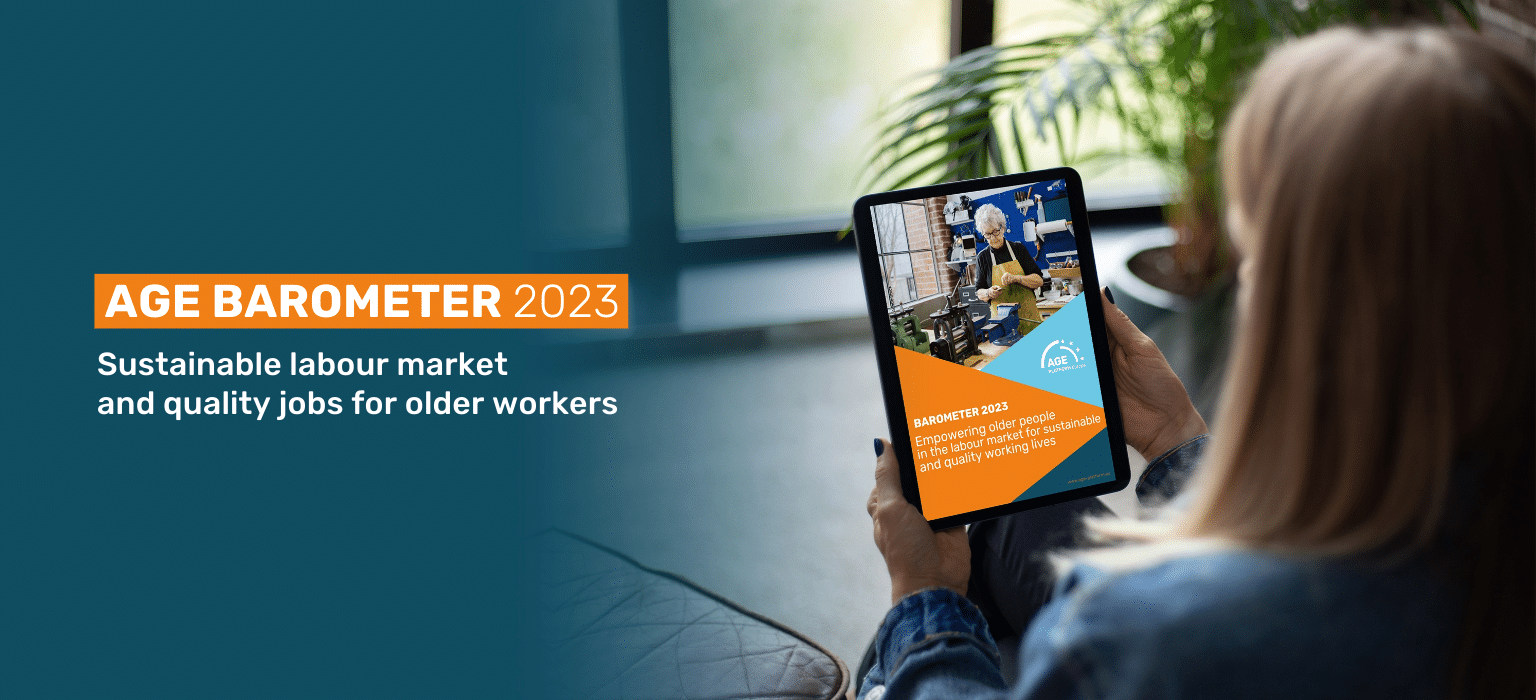Greece
Information provided by 50+ Hellas and desk research

Support in the labour market
The employment rate of people between 50 and 64 years old in Greece is 60.9%. This is below the European average. No specific measures have been taken to support older workers in doing career reviews or facilitating professional reconversion. There is also little protection against skills obsolescence for older workers, except for some periodic courses. However, some existing measures act in the interest of a better employment rate for older people. This is the case, for example, with the existence of high redundancy payments, especially for an older worker who has been in the company for some time. This is an important obstacle for employers who wish to dismiss their older workers.
In Greece, the long-term (12 months) unemployment rate for people between 50 and 64 is 73.3%. This is the highest rate in Europe. To address this, the Employment Office (OAED) has set up a temporary subsidy programme for employers to employ people aged 55-67 in the wider public sector (NPDD). However, this programme has significant weaknesses, such as the fact that the job offer is only for full-time jobs. The fact that the programme can benefit jobseekers of such a wide age range raises questions. It would be interesting to observe whether these measures benefit 67-year-old jobseekers as much as 55-year-olds and to adapt the measures accordingly.
In 2021, Greece recorded a fall in the unemployment rate well above the average (2.9 pps). The adoption of a new subsidy program the same year strengthened the country’s efforts. This program provides for the payment by the State of the social contributions of newly hired employees for six months and provides additional salary support of €200 per month for those who were previously long-term unemployed. 150,000 new jobs in the private sector would benefit. Older people represent a considerable proportion of the long-term unemployed, it would be interesting to know if this reform has benefited them and if not, to think about a clause to ensure more inclusion.
At EU level, the Recovery and Resilience Plan (RRP) is expected to create 62,000 jobs by 2026. A key element of the RRP is to promote job creation and labour market participation. The plan includes measures that will benefit workers, including older workers. Measures include the promotion of workforce development and re-skilling, the improvement of the public employment service (OAED) and the improvement of the coverage and distribution of benefits to the unemployed, as well as the modernisation and simplification of labour law, which includes the implementation of a work-life balance framework to combat the gender employment gap.
Self-employment was once a way for older workers to earn income, however, it declined in 2017 due to high tax/insurance maintenance costs.
Finally, the transition to retirement depends on the human resource management policies of each company as there is no pre-established model. Early retirements are more common and are used instead of dismissal by employers.
Age discrimination in the labour market
In Greece, law 3304/2005 implements the Council directive 2000/78/EC, which establishes the general framework for equal treatment in employment and occupation.
In June 2019, a new labour law 4808/2021 introduced crucial reforms to the Greek labor market. Among the measures it includes, this law prohibits dismissal on grounds of discrimination. This law also provides for regulations against violence and harassment in the workplace. It also provides for the right of an employee who is the victim of workplace harassment or violence to leave the workplace for a reasonable period, without loss of pay or other consequences, and the obligation of employers to adopt written policies to prevent and combat harassment and violence at work and deal with internal complaints.
There has been an Ombudsman in Greece since 1998. It is an independent authority established by the Constitution. It acts as an intermediary between public administration and citizens in order to help citizens exercise their rights effectively. Its main mission is to fight against discrimination, particularly with regard to age.
The Greek Recovery and Resilience Plan provides a component to “increase access to effective and inclusive social policies”. One of the investments consists in developing and delivering “diversity training programmes for employees in both the private and public sector with the aim of fighting discrimination against all dimensions of diversity in the workplace”. The Equality Observatory of the Ministry of Labour and Social Affairs will be supported to produce “comprehensive reports assessing the state of play of equal opportunities” and a certification mechanism with an award system will be developed to promote good practices.
Workplaces for all ages
Several institutions are responsible for monitoring working conditions. Among these, the Social Partners for Occupational Health and Safety (ELINYAE) and the Labor Inspectors Control Body of the Ministry of Labor, made fully independent by Law 4808/2021. However, no reference to the specific situation of older workers is made and does not seem to be a priority to date. The DYPA has a service for ergonomic adaptation of the workstation, but it is only intended for people with disabilities.
The new law 4808/2021 has transposed directive (EU) 2019/1158 on work-life balance for parents and carers. This new measure facilitates the reconciliation of professional and personal life and thus supports working informal carers and in particular older women who are more likely to be in this situation. The law also provides for the establishment of a flexible schedule allowing for an adjustment of working time.
In terms of digitization, the new law 4808/2021 provides for teleworking. The law provides in particular that the employee can ask to work remotely to avoid health risks, which can be beneficial for older people with reduced mobility. The law guarantees the worker’s protection by providing the right to disconnect or requiring the employer to pay for the costs incurred by teleworking.
Several policies or services aim to bridge the digital divide at work and facilitate the inclusion of older workers in the context of digitisation. There are indeed lifelong learning programs that include digital skills. However, communication around these programs is weak, especially when it comes to informing or targeting older people. The Greek Recovery and Resilience Plan will also reform the training model to ensure the qualification, re-skilling and upgrading of the workforce. A specific focus on digital training of older people and people with disabilities is provided, focusing on the “acquaintance, familiarisation and education of older people and persons with disabilities in new technologies, mainly in terms of digital information, communication and internet-based and social media skills (such as making electronic payments, submitting applications through digital platforms, using social media)”.
This country assessment is part of the 2023 edition of AGE Barometer dedicated to employment, which you can download below. Find out more online here.
COUNTRY ANALYSIS
Contact

Sarah Loriato
Policy Officer on Employment and European Parliament Liaison
Sarah is in charge of AGE’s policy activities in the fields of employment, participation and active citizenship in old age. She also monitors EU initiatives on volunteering for older people and lifelong learning. She is responsible for the Task Force dedicated to on Employment, participation and active citizenship. Sarah also coordinates AGE’s relations with the European Parliament (EP).



